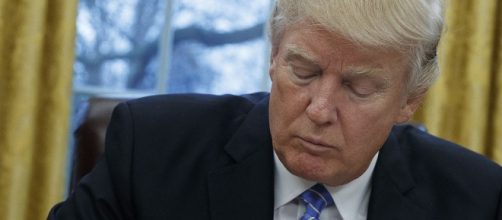The Trump administration lost again another legal battle to keep foreigners from six Muslim countries out of the U.S. The Ninth Circuit Court upheld on Monday the decision of the Fourth U.S. Circuit Court of Virginia which decided against the travel ban on May 25.
The Fourth Circuit Court’s decision is on appeal to the Supreme Court. The Ninth Circuit Court cited the June 5 tweet of Trump in its decision that rejected the appeal by the administration to overturn the lower court’s ruling.
Lawyers were right in restraining Trump from tweeting
In the tweet, the president insisted that the U.S.
needs a travel ban or some dangerous nations. Trump said the ban against citizens from Iran, Syria, Libya, Yemen, Sudan, and Somalia is what would help protect Americans, not some politically correct term.
Trump had been warned by his advisers not to use the word “ban” because banning people based on their religion or nationality is unconstitutional. The president only listened once to his lawyers’ advice not to tweet on June 8 when former FBI Director James Comey testified before the Senate Intelligence Committee.
If the lawyers want the president to be more careful in his tweets, it is because White House Press Secretary Sean Spicer had declared that Trump’s tweets are considered official statements of the POTUS.
His declaration belies the complaint by senior adviser Kellyanne Conway that the media is obsessed with Trump’s tweets.
Focus on countries makes no sense
The Ninth Circuit Court, in its decision, said the administration focusing on countries does not make sense. The ban will include citizens who have migrated to another country, not on Trump’s list, however, it will not exclude someone from a country not on the banned list but went through a radical country in one of the six Muslim-majority nations, Mashable reported.
The court also said that the White House failed to prove there is a connection between terrorism and the six Middle Eastern and African where the majority of its population are Muslims, The Washington Times reported.
The court found something lacking in trump’s reasoning when he claimed to be acting in the interest of national security in pushing for the travel ban. The three-judge said the executive order of the president which featured extreme vetting is illegal and it went beyond the law.
The state of Hawaii filed the case because of the potential of the travel ban to harm the island’s higher-education system since it might block potential foreign students from applying.


